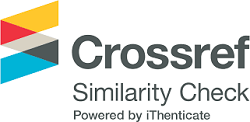A Reverse Supply Chain Model to Reduce Waste of Solar Panel in Ho Chi Minh City, Vietnam
Abstract
The reverse supply chain (RSC) recently attracted many Vietnamese authorities, enterprises and academia owing to the rise of concern on the environment and regulations of waste process. Along with rapid development, Vietnamese manufacturing network has become tightly strained when the end-of-life (EOL) items are not taken back by their manufacturers but end up being processed disorderly in different local businesses. A distressing example is the waste of imported solar panels in Vietnam. Since the number of solar panels has grown steadily in Vietnam recently, we speculate that the network flows of EOL solar panel of Vietnam will be very large and complex in a few years. In order to help Vietnamese government establish efficiently RSC, our paper will apply the mixed-integer linear programming (MILP) and demonstrate an optimized solution for the RSC of EOL solar panel in Ho Chi Minh City. Indeed, via our collected data from current financial market of Ho Chi Minh city, our MILP shows that the optimal cost-reduction is 11219 USD, even with limited constraints of only two landfills and very few collection facilities in Ho Chi Minh city at the moment. This result of our proposed RSC demonstrates that a significant profit is definitely possible when the number of collection facilities in Ho Chi Minh city increase in the future. Also, our MILP approach is flexible for decision-makers to achieve a satisfactory solution.
This is an Open Access article distributed under the terms of the Creative Commons Attribution License (http://creativecommons.org/licenses/by/4.0/), which permits unrestricted use, distribution, and reproduction in any medium provided the original work is properly cited.
Keywords
End-of-life, solar panel, reverse supply chain, mixed-integer linear programming
Full Text:
PDFTime cited: 0
DOI: http://dx.doi.org/10.55579/jaec.202262.354
Refbacks
- There are currently no refbacks.
Copyright (c) 2022 Journal of Advanced Engineering and Computation

This work is licensed under a Creative Commons Attribution 4.0 International License.










